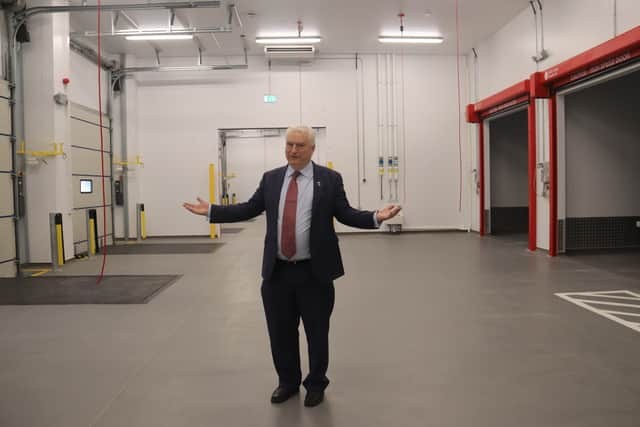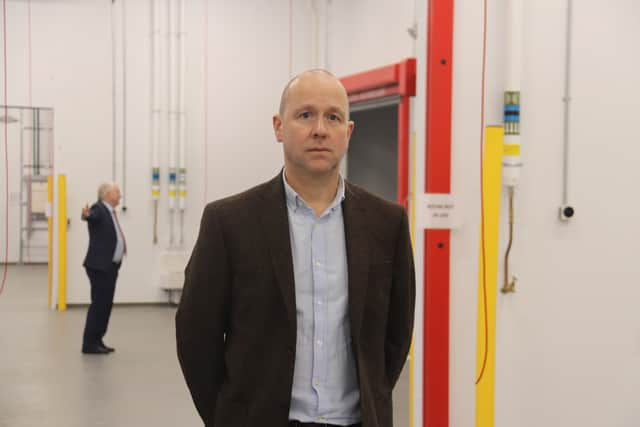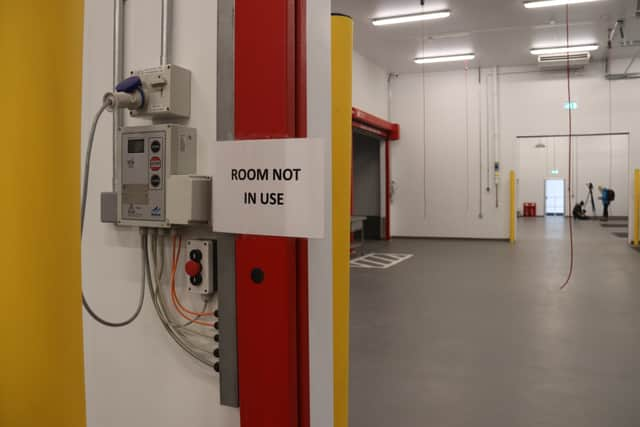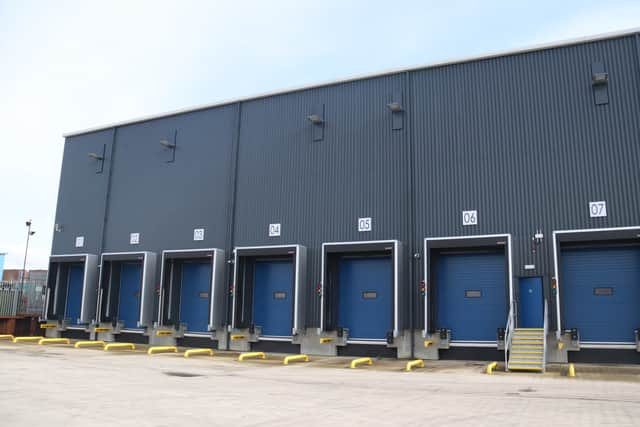Portsmouth port: "White elephant" border control post could be demolished as Brexit site branded costly burden
and live on Freeview channel 276
Safety and security checks at the £25m two-acre building are due to begin on April 30, but not to the previous specification of when it was constructed. With much of it remaining unused, the financial impact on the council-operated port - and subsequently the taxpayer - could be severe.
Councillor Gerald Vernon-Jackson, cabinet member for transport and responsible for the port, is still seething about the £7m burden placed on the council in 2022. He told The News: "It happens to be painted black, but it is a white elephant. It was built exactly as the government told us to build it, now they’ve said they don’t need to use most of it, and most of it is going to remain empty.
Advertisement
Hide AdAdvertisement
Hide Ad

“It is a complete waste of money. If they’d paid for it all, fine, but they didn’t. They expected taxpayers in Portsmouth to find £7m towards it, but we’re not going to be using most of it. It’s a total mess. It is a tax on the people of Portsmouth."
The Border Control Post (BCP) was built to a deadline of July 1, 2022, as part of the government's Border Operating Model to process goods from the EU after Brexit. The scheme required stringent checks on animal, dairy, plant and other products. Even though the building was constructed, the government decided to U-turn on the procedures, leaving much of the facility redundant.
Under the government's new Border Target Operating Model (BTOM), items including live animals, plants and high risk food and feed of non animal origin need to be scrutinised for contamination and diseases, but to a lesser extent than the previous model. Goods are categorised into low, medium and high risk, with medium risk items needing Port Health certification. Low risk products such as many plant and plant based items need less checks, despite many parts of the BCP being specifically catered to that purpose. Mike Sellers, port director, said the facility was primed to handle 50 vehicle checks a day on average, but now they expect to examine four to five a day on average. "It has been hugely frustrating and hugely challenging due to the various changes that have happened to the policy," the 51-year-old said. "We built this for quite a large number of checks. Due to the diverse range of products coming through, we built, in good faith to the government’s plans, a huge facility which takes up two acres of land.




"What that means for us now is we will be using half of this facility based on the design from the checks which start at the end of April. Had we started from fresh, we would have built something smaller."
Advertisement
Hide AdAdvertisement
Hide Ad

There are 14 bays at the site for lorries to be checked, with Mr Sellers stating that half of them are expected to be used. He said the government have given ports the ability to section off parts of the building to commercial companies for extra revenue, but this is far from a guarantee due to the bespoke nature of them. Mr Sellers said the port is waiting to find out what rates the government is charging on imported products coming into its port in Kent, in order to be competitive and reduce the change of losing customers. He added that the facility and the uncertainty could hugely impact the port's finances.
"We will look to minimise the operating costs of this building," he added. "It may well be the best solution is to build something new, much smaller, and demolish this and use it for operational purposes. We’re not going to make that decision too quickly until we know what is going to happen to the future with government policy." Mr Sellers added that the short term aim for the port is to make the BCP cost neutral. Cllr Vernon-Jackson said the running costs, which are estimated to be £800,000 a year minimum, will have a "massive impact" on the local authority's finances. Some fear it could be as high as £2.5m every 12 months. "It’ll mean that some money will go into subsidising the building, instead of subsidising services in the city, and that’s bad," he added. The port announced an £8m profit for this financial year, but healthy figures like this could be under threat. Cllr Vernon-Jackson said if the government "keep messing up", then port profits will decrease and less value will be provided to the taxpayer.
"It is all going to mean that food in our shops is going to be more expensive due to the red tape which the government has added to importers," he added. "We don’t know how much the charge is going to be, or if it’s shared throughout all the ports. We just don’t know."
He said that companies such as Brittany Ferries may look to do business elsewhere if certain goods are not permitted through the port, though the council is working on a new 20 year partnership with them. He added: "If we have to say that high risk products such as meat and dairy can’t come in, and low risk products such as lettuces and tomatoes can, then companies might turn away trade."
Comment Guidelines
National World encourages reader discussion on our stories. User feedback, insights and back-and-forth exchanges add a rich layer of context to reporting. Please review our Community Guidelines before commenting.